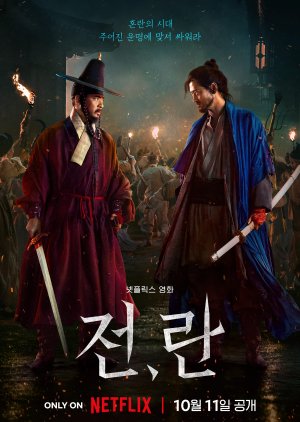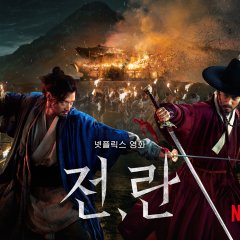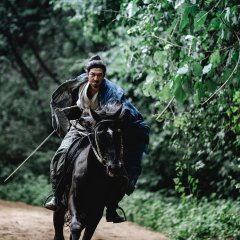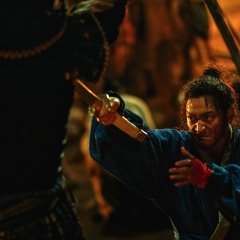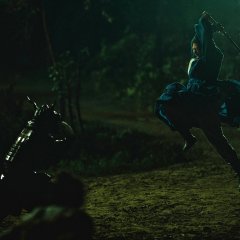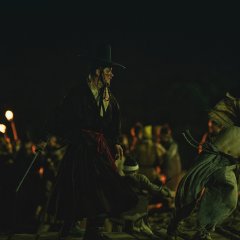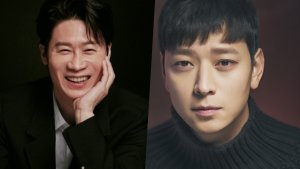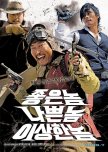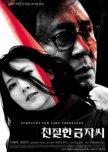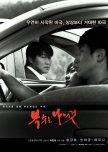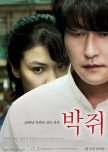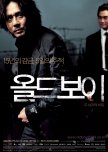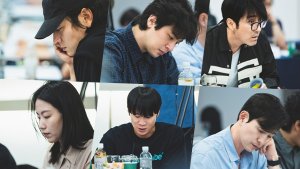 Kang Dong Won, Cha Seung Won, Director Park Chan Wook and More Confirmed for "Jeon Ran"
Kang Dong Won, Cha Seung Won, Director Park Chan Wook and More Confirmed for "Jeon Ran" Soulèvement propose aux spectateurs un voyage prenant à travers la vie de deux amis d'enfance devenus ennemis dans le contexte chaotique de la guerre. (Source : Netflix) Modifier la traduction
- Français
- Arabic
- Українська
- Nederlands
- Titre original: 전,란
- Aussi connu sous le nom de: Jeon, Lan , Soulèvement , Jeon, Ran
- Réalisateur: Kim Sang Man
- Genres: Action, Historique, Drame, Guerre
Où regarder Uprising
Subscription (sub)
Distribution et équipes
- Kang Dong WonCheon YeongRôle principal
- Park Jung MinYi Jong RyeoRôle principal
- Kim Shin RokBeom DongRôle principal
- Jin Sun GyuKim Ja RyeongRôle principal
- Jung Sung IlGenshin KikkawaRôle principal
- Cha Seung WonKing Seon JoRôle principal
Critiques

Suis-je toujours ton ami ?
Les productions de Netflix ne sont pas mes préférées, mais le casting m'a vendu du rêve. De même quant aux grandes lignes mêlant amitié et confrontation sur fond d'invasion japonaise.Uprising raconte l’histoire de deux amis d’enfance coréens issus de classes différentes qui se sont déchirés et sont devenus ennemis. Les parties du film se distinguent les unes des autres, tout en ayant un montage qui rappelle l'avancée de l'histoire. Malgré l’invasion japonaise et sa sombre histoire de nez coupés, il est intéressant de voir la façon dont le brasier a dévoré l’intérieur du peuple coréen, mettant aussi à mal l’amitié des deux amis.
Les scènes de combat sont efficaces, menées par Gang Dong Woo, Park Jeong Mon et Jung Sung Il. J'attendais de voir ce trio s'affronter, épées en main, et c'est ce qui est arrivé dans des scènes dynamiques et sanglantes. Gang Dong Woo et Jung Sung Il font partie de mes acteurs préférés, j'en attendais tout au spectacle, et je l'ai obtenu. L'ensemble du casting est excellent - personnages principaux, secondaires et figurants.
En revanche, il est dommage de voir le film délaisser des idées intéressantes, notamment celles autour du roi Seonjo (Cha Seung Won), qui m'a souvent donné l'impression d'être une autruche aux portes d'une folie subtile. De plus, j'ai trouvé un manque de profondeurs (et d'inspiration) quant aux dialogues.
Bref, ce n'est pas un film que j'ai envie de revoir une seconde fois. Et bien que l'histoire n'atteigne jamais son plus haut niveau, le film sait rester entraînant, sur fond d'invasion japonaise et de révolte du peuple. Le tout avec des scènes de combats pleine d'action, dont une scène finale superbe, malgré une fin en demi-teinte.
Cet avis était-il utile?

Cette critique peut contenir des spoilers
A HEARTBREAKING YET BEAUTIFULLY CRAFTED FILM
*Uprising* is a heartbreaking yet beautifully crafted film that takes us on an emotional journey through the friendship of Jong-Ryeo and Cheon-Yeong, set in a time of brutal class divisions in historical Korea. The plot centers on how the rigid social hierarchy affects their lives, particularly Cheon-Yeong, a slave who is forced to endure countless hardships in place of Jong-Ryeo.What starts as a cruel situation—Cheon-Yeong being beaten in Jong-Ryeo’s stead—evolves into a deep bond. Despite the fact that Cheon-Yeong isn’t born a slave, his family’s downfall forces him into this role, and it's his strength and refusal to accept the established hierarchy that makes him stand out. When he begins secretly teaching Jong-Ryeo how to fight, the dynamics between the two change, leading to a friendship that feels genuine despite the social disparity.
However, the film doesn’t shy away from the harsh realities of their world. Even after helping Jong-Ryeo win a prestigious sword-fighting competition, Cheon-Yeong is denied his freedom by Jong-Ryeo’s father, who breaks the promise of releasing him from slavery. This betrayal deeply scars Cheon-Yeong, though Jong-Ryeo still tries to protect him by sending him off to fight the Japanese invaders, hoping this will finally earn him his freedom. The film is filled with these moments of hope and crushing disappointment.
After years of fighting, Cheon-Yeong returns home only to find the world he left behind in ruins. Jong-Ryeo’s family home has been burned down by the people who suffered under the oppressive rule of his father. In one of the film’s most gut-wrenching moments, Cheon-Yeong tries to save Jong-Ryeo’s wife and son from the flames, but she refuses his help out of pride, seeing him as a slave rather than a person who might save her life. Her death serves as a stark reminder of how deeply ingrained social prejudice was, even to the point of self-destruction.
The climax of *Uprising* sees a tragic reunion between Jong-Ryeo and Cheon-Yeong after seven years of separation. Jong-Ryeo, unaware of the full story, initially believes Cheon-Yeong is responsible for his wife and son's deaths. Their final confrontation is tense, but as the truth is revealed, the film shifts focus from their conflict to a bittersweet reconciliation. Just when they finally resolve their long-standing misunderstanding, Jong-Ryeo is mortally wounded in battle against the Japanese. Cheon-Yeong kills the Japanese leader, Genshin, in a satisfying act of revenge, but it’s too late to save Jong-Ryeo.
In Jong-Ryeo’s final moments, he asks Cheon-Yeong if they’re still friends, referencing an earlier lighthearted exchange from their youth. It’s a poignant moment that captures both the tragedy and beauty of their relationship. Despite everything that has happened, the film shows that love and loyalty can persist, even in death. This scene is devastating, but it offers closure, showing that their bond was real despite the cruel world they lived in.
On a larger scale, *Uprising* also critiques the corruption of the ruling class, embodied by King Seonjo, whose greed and cowardice lead to the suffering of the common people. His alliance with the Japanese and subsequent desertion of his own throne during the invasion sparks the uprising that defines the film. The subplot involving Seonjo and the infamous Japanese leader Genshin, known as the “nose-snatcher,” adds layers of historical context and brutality to the narrative. In a symbolic twist, Seonjo’s greed is punished when the treasure he’s promised turns out to be boxes of human body parts—noses, to be precise—reflecting the horrors of war and the consequences of his betrayal.
In the end, Cheon-Yeong and a few of his fellow survivors form a new community, symbolically named “Beom Dong,” meaning “A world together.” It’s a hopeful note to close the film on, but *Uprising* doesn’t let the audience forget the price paid for such unity. The film leaves you with a lingering sense that although there’s hope for change, the struggle against social inequality is far from over.
*Uprising* masterfully balances personal and political themes, offering a powerful meditation on friendship, loyalty, and the fight for justice. It’s a tearjerker that hits hard, especially as it reveals the lasting impact of societal divisions, even as it tries to inspire hope for a better future.
Cet avis était-il utile?

